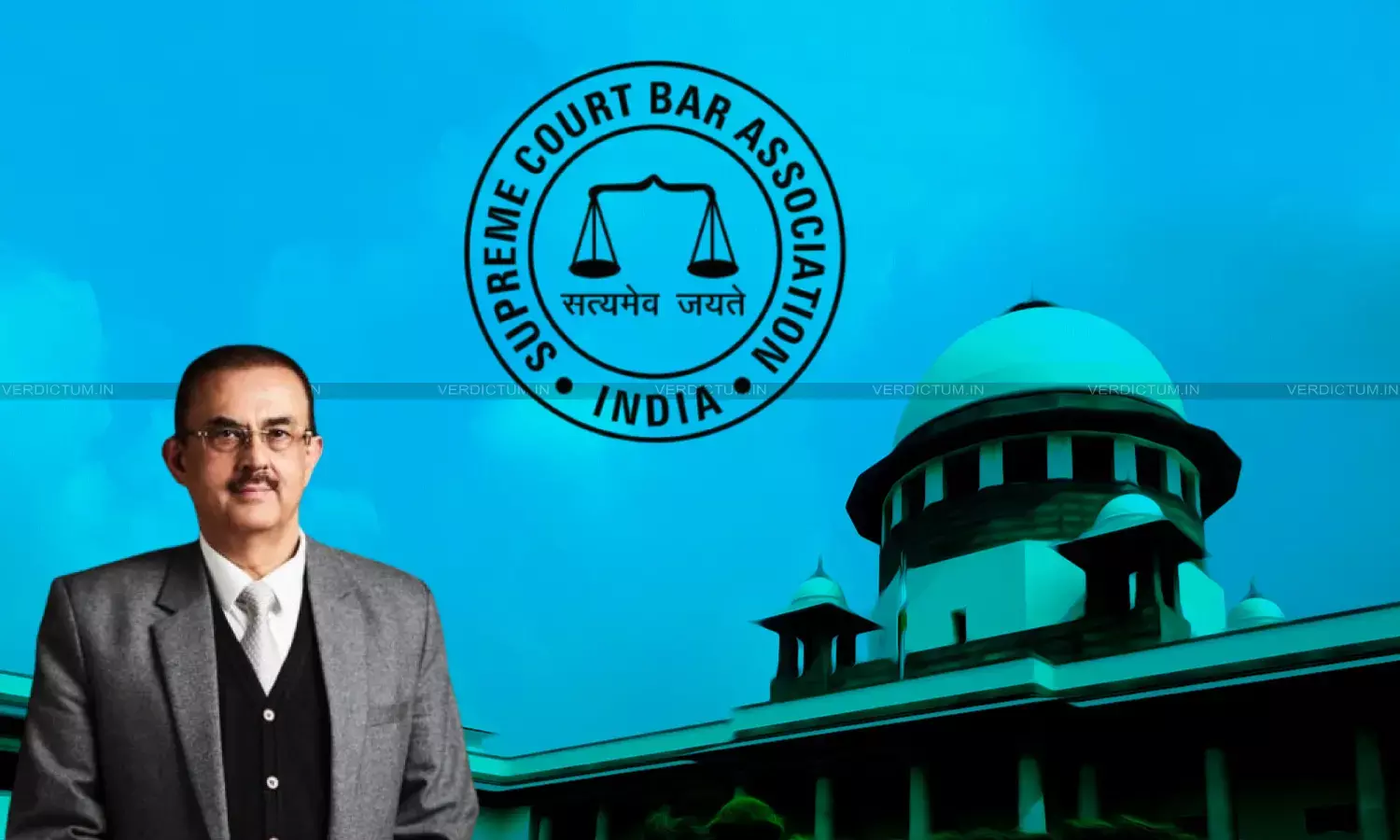SCAORA A Subset Of SCBA, Has No Role In Matters Concerning General Bar Or Infrastructure Of Supreme Court: SCBA To CJI
In his letter, President Vikas Singh states that SCAORA does not represent the general Bar and has been acting beyond its mandate by issuing communications on matters concerning infrastructure and Bar-wide policy.

Dr. Vikas Singh, Senior Advocate and President of the Supreme Court Bar Association (SCBA), has written to the Chief Justice of India, objecting to what he describes as the Supreme Court Advocates-on-Record Association (SCAORA) overstepping its role by making representations on issues relating to the general Bar and Supreme Court infrastructure. He states that SCAORA, a limited group formed solely for the benefit of Advocates-on-Record (AoRs), forms a subset of SCBA and lacks any independent mandate to speak on behalf of the wider Supreme Court Bar.
In the letter dated June 4, 2025, Dr. Singh wrote that while SCBA, established in 1951, represents all lawyers practicing in the Supreme Court, SCAORA, constituted in 1985, was only created for the benefit of AoRs, and even then, only those AoRs who became its members after joining SCBA. He stated, “Surprisingly, in the recent times, SCAORA, while acting beyond its mandate, has been issuing communications on matters relating to the general infrastructure, facilities and issues concerning general Bar members of the Supreme Court. These subjects strictly fall within the exclusive domain of SCBA, which represents the collective interests of all categories of lawyers practicing in the Supreme Court.”
The letter provides figures to underscore that SCAORA does not even represent all AoRs registered with the Supreme Court. Dr. Singh noted, “SCBA today comprises 22,734 members, which include 10,013 permanent members and 12,309 temporary members… the AoRs registered with the Supreme Court as on date are 3786 in number, while only about 3000 of them are members of SCAORA.”
Referring to a communication dated June 6, 2025, by the Secretary of SCAORA addressed to the Secretary General of the Supreme Court regarding biometric entry for lawyers, Dr. Singh objected to the letter being presented as representing the entire Bar. He wrote, “There is absolutely no question of members of the Bar voluntarily offering such extensive personal information to the Registry of the Supreme Court. If on the other hand, there is any mandate from the Supreme Court, for security reasons, upon discussion with the SCBA, the Bar would, of course, fully cooperate.”
He raised concerns regarding data security and privacy, stating, “The more such data is circulated among multiple institutions, the greater the risk of misuse. It is common knowledge that individuals with intent to access private data often succeed by exploiting weak links across different data-collecting bodies… suggesting that lawyers should volunteer such information without any official requirement or broader consensus is fundamentally flawed.”
Dr. Singh added that “SCAORA is the premiere body formed to look after the interests of AoRs. However, when any matter concerns the general Bar or relates to Supreme Court infrastructure and facilities, such communication should be routed through the SCBA.” He wrote that SCAORA is welcome to share its views with SCBA, which will be “duly considered by the SCBA Executive Committee” and communicated to the appropriate authorities where found appropriate.
In his letter, Dr. Singh cited the judgment in Supreme Court Bar Assn. v. B.D. Kaushik (2011), where the Supreme Court had observed, “There is no manner of doubt that court-annexed Bar Associations constitute a separate class different from other lawyers’ associations such as Lawyers’ Forum, All India Advocates’ Association, etc. as they are always recognised by the court concerned… In consideration thereof, the court provides space for office of the association, library and all necessary facilities like chambers at concessional rates for members regularly practising in the court, parking place and canteen besides several other amenities… The regular practitioners are treated as officers of the court and are shown due consideration.”
He also recalled the decision in Gopal Jha v. Supreme Court of India (2019), where the Supreme Court upheld the requirement of SCBA membership for chamber allotment. Quoting a paragraph of the judgment, the letter stated, “Having regard to the existence of Rule 4 in the Rules and Regulations of SCAORA itself, the entire edifice of the petitioners’ case stands demolished… Therefore, unless an advocate is an AoR and also a member of SCBA, he cannot become the member of SCAORA. This requirement itself accepts the position that SCBA is an umbrella organisation and also recognises the vital role it plays. Thus, the argument based on Article 14 of the Constitution would be of no avail.”
He concluded by stating that his intention is to set the matter straight and to ensure that the functioning of this institution remains cohesive, disciplined, and free from unnecessary overlaps or conflicts, particularly in matters concerning the general interests of the Bar or the infrastructure of the Supreme Court.
The communication, he said, aims to promote a unified voice within the Bar, ensuring seamless collaboration and respect for institutional integrity, while maintaining harmony between the Bar and Bench.
Click here to read/download letter


